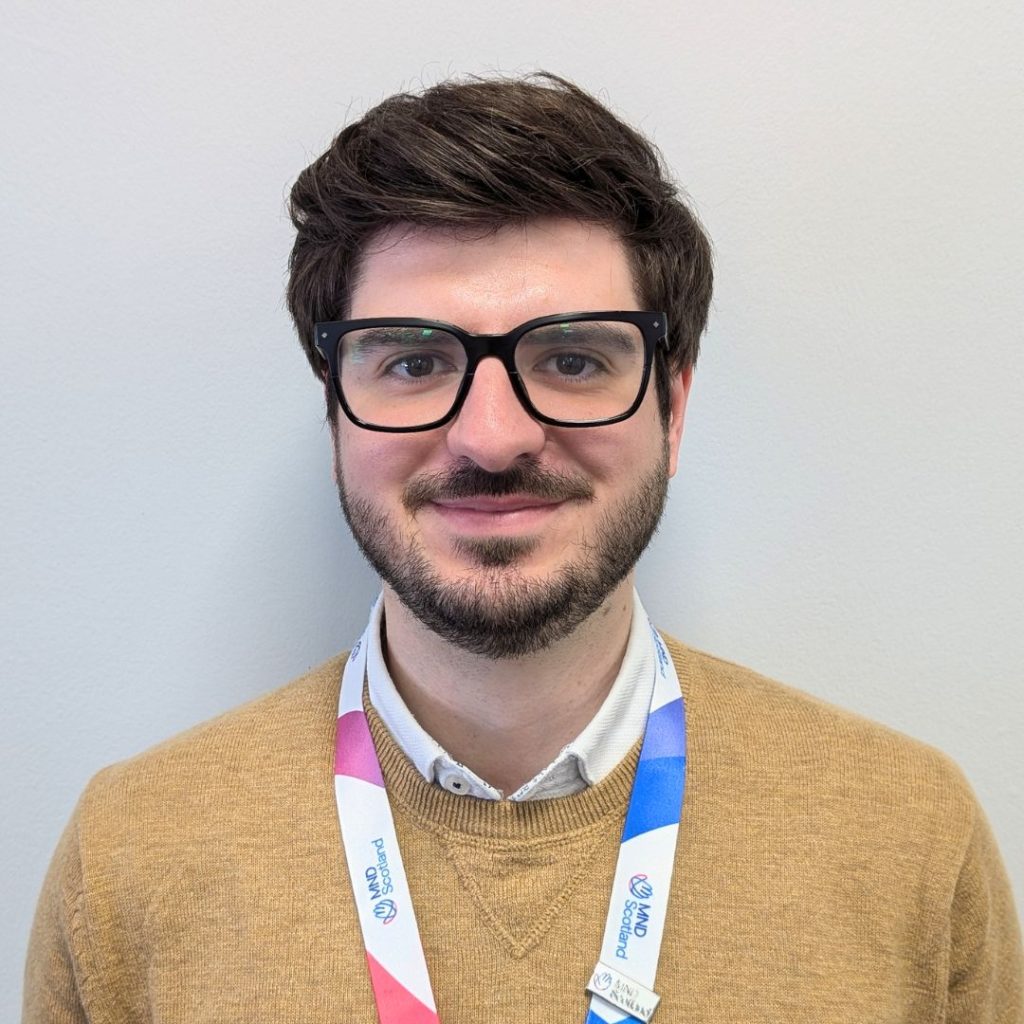What is MND
Find support
I have MND
I am supporting someone
Get involved
Research
About MND Scotland
What’s new?
© MND Scotland 2026
© MND Scotland 2026

Earlier this summer, I was fortunate to have the opportunity to represent MND Scotland at the annual ENCALS meeting in Stockholm.
ENCALS (European Network for the Cure of ALS (Amyotrophic Lateral Sclerosis) is a network of universities and hospitals across Europe that work in MND research. Each year, the ENCALS meeting is hosted in a different European city giving researchers the opportunity to present on their work, as well as having the opportunity to build their networks throughout the continent. It is a great chance to get an insight into MND research in Europe as well as make important connections with MND researchers, and other charities that fund research, for collaborative working in the future.
Over the course of the three days of talks, posters and discussions a recurring thought I had was how important it is that all the work being carried out, and the findings being made are being shared to help develop our collective understanding of MND. I attended presentations on subjects such as the possible roles of faulty TDP-43 in MND, inflammatory cell involvement in MND and the genetics of MND in different countries, which mirrored areas of research I recognised from MND Scotland’s own funding portfolio. Seeing the bigger picture of how the findings from these research projects could complement one another to help develop a better knowledge of MND and how to potentially treat it was really eye opening. It’s like each project’s findings is a piece of a jigsaw and that as each piece clicks into place, we get closer to completing the puzzle of understanding MND. With the aim being completing this puzzle, I don’t think the importance of these researchers worldwide collaborating and sharing information can be understated in the pursuit of better MND treatments and care. In-person, international meetings, such as ENCALS, really are crucial for providing opportunities for this to happen.
Several speakers stated how important their country having a well populated MND patient register available to researchers was invaluable. For researchers to make their findings they need information about MND and how it affects people’s bodies, for example levels of proteins in cerebrospinal fluid, or movement ability at different stages of the disease. As an example, researchers from Sweden, Catalonia and the Republic of Ireland spoke about the vast use of their countries MND registers in disease mapping, incidence tracking and prevalence of genetically driven MND in their countries. It was even mentioned that institutions in Sweden may be able to provide data from their register to researchers in other countries.
In Scotland, we are fortunate to have an incredibly well populated MND register in the CARE MND platform, which MND Scotland contributed more than £500,000 to set up. This resource provides researchers with an incredible amount of data on people with MND in Scotland, which is crucial for helping to drive their research forward. The importance of the register was highlighted in an excellent talk by MND Scotland funded researcher Dr Milena Contreras, who presented research carried out with Prof Sharon Abrahams in Edinburgh.
Access to CARE MND was crucial for them to recruit people with MND to take part in their research into cognitive and behavioral changes in MND (MND research boost – MND Scotland). These registers could not exist and would not be as valuable a resource if it wasn’t for the healthcare professionals and specialist nurses helping to collect the information, and, of course, the people with MND undergoing tests and consenting to their results and information being made available for research purposes.
Another important use of these registers is that the information stored can help to ensure people are directed towards trials most suited to them, and the registers will be even more important when we reach a stage of personalised treatment options in the future. This really speaks to how research in a country isn’t only reliant on collaboration and knowledge sharing between institutions and researchers, but it is so dependent on those affected by MND and those who work to care for them every day.
My experience at ENCALS was a really valuable one. I appreciated the opportunity to build relationships which will be helpful as I continue in my role as Research Lead here at MND Scotland. I think the most valuable take home is the realisation of just how important every MND project being carried out is. Having sight of the projects MND Scotland funds daily has allowed me to see progress and learning about MND. However, when you’re able to take a step back and see the bigger picture you really gain an appreciation for how every bit of knowledge gained throughout the world has an important part to play in moving forward our understanding of MND and future research.
We have an incredibly talented, committed and hard-working group of MND researchers in Scotland. It’s amazing to know that, through their work and the sharing of their findings, Scotland is playing its part in the collective effort to achieve a world without MND.
Sign up
for newsletter
Get the latest news and events straight to your inbox.
You can help create a world without MND